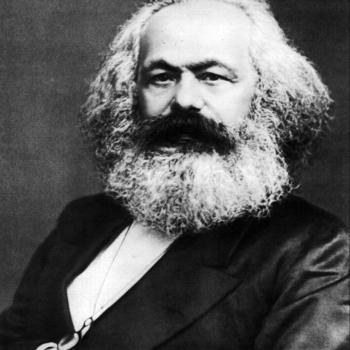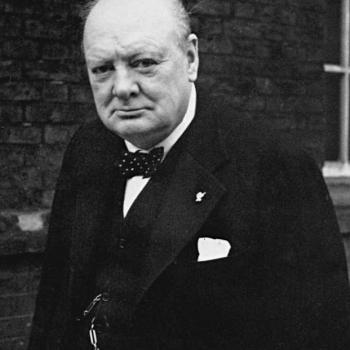
So just what is my problem with a certain “secularism” that seems to be setting the tone among a group of enthusiasts for a New Mormon Studies (notably at the New Maxwell Institute)?
I hope I’ve already made it clear in my previous post that my objection is not to intellectual engagement with non-Mormons, or, for that matter, with non-Christians or even non-theists. Such intellectual engagement is part of my “spiritual journey,” as it is part of David Bokovoy’s. Some people I respect (friends and family members) have sometimes even ventured to suggest to me that I lean too much on “reason,” that I estimate too highly the alliance between deep and rigorous reflection on the one hand and faithfulness to the Restored Gospel on the other. No doubt that is my natural inclination; I have a deep investment in what might be called, to coin a phrase, The Responsibility of Reason. In fact – and this is the point would-be defenders of “secular” learning like David Bokovoy seem to have difficulty fathoming – I think more highly of reason than do the “progressives” who for David represent the very summit of intellectual openness. I think more highly of reason and I am more suspicious of “secular” “progress.” Because I think more highly of reason, I am more suspicious of secular progress, I have less faith in secular progress.
I think more highly of reason because I think reason is inherently responsible for, responsive to some Good, some real (if elusive) Good that is not merely “historical,” not a mere product of human construction. I do not object, in principle, to, as David Bokovoy writes, the bracketing of “certain traditional Mormon claims” (although it might fairly be asked whether such bracketing is best done in BYU publications and under the name of Neal A. Maxwell). What I am ready to criticize, as a matter of principle, is a narrower kind of bracketing that increasingly defines the approach of professional, “secular” historians, as their principles are explicitly defended in publications by the New Maxwell Institute. In these writings, as I have already illustrated with ample citations for published articles, the question of the meaning of Mormonism is sometimes reduced to that of the ways in which Mormonism (and notably the Book of Mormon itself) exhibits its 19th-century American context (or perhaps some slightly broader historical frame). Such a dismissal of any wider (specifically Mormon or other) conception of truth is deemed necessary in order, as Brian Birch argued in the first Mormon Studies Review, to achieve “objectivity” such as might satisfy the criterion of “publicity” upheld by a self-authorized academic guild whose authority it would be unseemly to question. Stephen Taysom, as I have shown, in the same MSR made the case more explicitly for the tradeoff necessary to “be held in esteem by the larger academic community”: the “rules of scholarly inquiry,” he stated plainly, must be severed neatly from “those that govern eternal truth.” And these rules imply that “Mormonism is a cultural phenomenon…a human construct.”
Now, no one who has given the matter any thought would dispute the idea that Mormonism is in some ways a “cultural phenomenon,” subject to being shaped by “human construction,” up to some point. But the question at hand is whether we should buy “maturity” as a secular discipline by reducing the meaning of Mormonism to such historical, cultural, human construction. My critical reason leads me to question the “objectivity” of this requirement of the academic guild more than enthusiasts of the New Mormon Studies are inclined to do.
I have no problem with the proposition that we can learn interesting and perhaps even edifying things from “secular” scholars who willingly put on this reductive strait-jacket of historical construction. I am willing to go to lunch with such scholars in view of learning something from them. (I would try not to testify or to apologize.) I do not contest the value of some studies that limit themselves to the question of historical context. What I do contest is the imperialism of such methodological limitations; I contest the claim that such a narrowed framework should set the standard for what is “objective.” The question, then, is whether we should embrace these limitations for ourselves as a mark of our “objectivity” and thus our “maturity.” The question, in other words, is whether we should set methodological boundaries on our search for the truth in order to play the scholarly game on the field already defined by … well, by those who get to define the field. The Editors of the MSR declare themselves disinclined to define any prior commitments of the Maxwell Institute; in order to avoid being considered “parochial” they are willing to embrace the indeterminacy of a “multiplex subjectivity” and to reduce the Mormon element of Mormon Studies to the simple idea of “friendship.”
Well, as I argued earlier, this gesture of friendship is sweet, but its effect seems to be to allow or rather to invite, not only non-Mormons, but non-Mormons committed to the substitution of the question of Historical Construction for Truth to set the terms of the friendship by setting the agenda for “objective” scholarship. Under these terms, as we have seen, it is fair to state flatly “that there were no ancient gold plates,” but evidently not fair, or scholarly, or mature, to say: well, I think there were. (And actually to openly contradict such a flat statement by advancing evidence in favor of ancient origins, thus associating oneself with those marginal “conservatives” – so named in the New Maxwell Institute’s Journal of Book of Mormon Studies –, who insist on taking seriously the Book of Mormon’s own account of its origins, would clearly be outright bad manners, either embarrassingly crude or just plain nasty.) To propose, as one less mature student of Mormonism once did, that , “everything in the Church—everything—rises or falls on the truthfulness of the Book of Mormon and, by implication, the Prophet Joseph Smith’s account of how it came forth” would clearly constitute an automatic disqualification from the exciting new field of secular Mormon Studies.
I have also earlier suggested that the New Mormon Studies’ embrace of “secularism” has implications for one’s understanding of morality. To use a French expression, secularism, it seems, is “un bloc” – that is, it is a whole, it is all of a piece, the scholarly agenda and the moral-political agenda stand or fall together. One of the most interesting features of David Bokovoy’s discussion of “secularism” is his seamless movement from defending a certain “secular” scholarship to his defense of “the moral convictions” that some have “gained through secular studies.” Apparently he is just as impressed by the “objectivity” of these secular “moral” convictions as he is by reductive methodologies in studying Mormon history.
In our next installment, I will consider this moral dimension of secularism. And I will again question the association of secularism with what is rational or intellectually rigorous.











